Player Profiles
 Marc Elias
Co-lead counsel
Marc Elias
Co-lead counsel
 Charlie Nauen
Co-lead counsel
Charlie Nauen
Co-lead counsel
 David Lillehaug
Attorney
David Lillehaug
Attorney
 Ken Martin
Recount director
Emmer / GOP Team
Ken Martin
Recount director
Emmer / GOP Team
 Eric Magnuson
Chief litigator
Eric Magnuson
Chief litigator
 Michael Toner
Lead attorney
Michael Toner
Lead attorney
 Tony Trimble
Attorney
Tony Trimble
Attorney
 Ben Golnik
Recount operations manager
State Team
Ben Golnik
Recount operations manager
State Team
 Mark Ritchie
Secretary of State
Mark Ritchie
Secretary of State
 Paul Anderson
MN Supreme Court Associate Justice
Paul Anderson
MN Supreme Court Associate Justice
 David Stras
MN Supreme Court Associate Justice
David Stras
MN Supreme Court Associate Justice
 Denise Reilly
Hennepin County judge
Denise Reilly
Hennepin County judge
 Gregg Johnson
Ramsey County judge
Gregg Johnson
Ramsey County judge
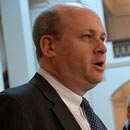
Marc Elias
Co-lead counsel
Elias is based in Washington D.C. He was the lead attorney for Al Franken's team in the 2008 U.S. Senate recount. In 2004, Elias was general counsel to the Kerry-Edwards presidential campaign. He served in that same capacity for Chris Dodd's presidential primary campaign in 2008.
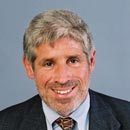
Charlie Nauen
Co-lead counsel
Nauen is a partner in the Minneapolis law firm Lockridge Grindal Nauen. During the 2008 recount, he represented a group of Franken voters seeking to get their rejected absentee ballots counted.
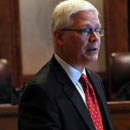
David Lillehaug
Attorney
Lillehaug also worked on the Franken recount team in 2008. He also served as U.S. Attorney for Minnesota during the Clinton administration.
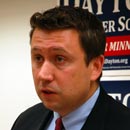
Ken Martin
Recount director
Martin has been instrumental in DFL politics for the past several years. He was the campaign coordinator for John Kerry's presidential bid in 2004. In 2006, he worked on Democrat Attorney General Mike Hatch's failed gubernatorial bid. In 2008, he managed the successful efforts to increase the state sales tax and dedicate those funds for the environment, the outdoors, the arts and cultural programs. In 2010, Martin coordinated the 2010 Fund and Win Minnesota. Those two umbrella groups were responsible for funding the Alliance for a Better Minnesota, which ran millions of dollars in advertising criticizing Republican Tom Emmer.
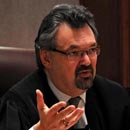
Eric Magnuson
Chief litigator
Magnuson is a former Minnesota Supreme Court Chief Justice, and also served on the State Canvassing Board for the 2008 U.S. Senate recount between Al Franken and Norm Coleman. The board issued several key decisions on how to handle disputed ballots, which votes to count, and which issues to pass on to be decided in the recount trial which took place after the canvass was concluded.

Michael Toner
Lead attorney
Toner is based in Washington D.C., and served as chairman of the Federal Election Commission under President George W. Bush. Toner was chief counsel of the Republican National Committee in 2001-2002, as well as general counsel of the Bush-Cheney transition team, and the Bush-Cheney presidential campaign in 2000.
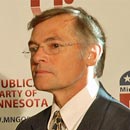
Tony Trimble
Attorney
Trimble, based in Minneapolis, also served on the legal team for Republican Norm Coleman in the 2008 Senate recount.
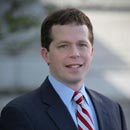
Ben Golnik
Recount operations manager
Golnik oversaw the GOP's successful campaign to win control of the state Senate in this year's election. Golnik previously served as executive director of the Republican Party of Minnesota.
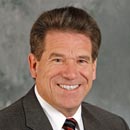
Mark Ritchie
Secretary of State, member of the state Canvassing Board
Ritchie will oversee the recount process as it moves forward, the same role he played in the 2008 U.S. Senate recount. Ritchie, a DFLer, was re-elected to a second term in early November.
Republicans have tried to portray him as unfair, pointing this year to postings on a personal Twitter account that raised doubts about Emmer's chances. It was much the same as two years ago, when he was cast as a bogeyman by the GOP. Ritchie has strongly defended the integrity of the 2008 recount, and has objected to the politicization of the recount process.
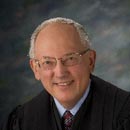
Paul Anderson
Minnesota Supreme Court Associate Justice, member of the Canvassing Board
Two decades ago, Anderson helped a Republican maneuver through the courts on his way to the governor's office. The candidate was Arne Carlson and Anderson was on a legal team that helped secure a spot on the ballot after the GOP's nominee withdrew within weeks of the election. Carlson named Anderson an associate justice on the Minnesota Supreme Court. He's won re-election three times.

David Stras
Minnesota Supreme Court Associate Justice, member of the Canvassing Board
The newest member of the Supreme Court, Stras is also the only justice who wasn't around during the 2008 election fight. GOP Gov. Tim Pawlenty plucked Stras from obscurity earlier this year for a court vacancy. Stras once clerked for U.S. Supreme Court Justice Clarence Thomas, although it was a couple years after the famous Bush v. Gore ruling.

Denise Reilly
Hennepin County judge, member of the Canvassing Board
Reilly was one of three judges to sit through the seven-week trial in the 2008 U.S. Senate recount. The election contest panel ruled in Al Franken's favor. Reilly, a former federal prosecutor, is a third Carlson appointee on the board. He named Reilly to the Hennepin County bench in 1997 and she's been re-elected twice since.

Gregg Johnson
Ramsey County judge, member of the Canvassing Board
Johnson has been a Ramsey County judge since appointed by Carlson in 1992. Johnson came up through the legal ranks as a public defender. Johnson has presided over cases involving alleged cop killers and priests accused of sexual abuse. One of his more notable cases was in 2005, when he ordered the state to continue critical services during a partial government shutdown.


